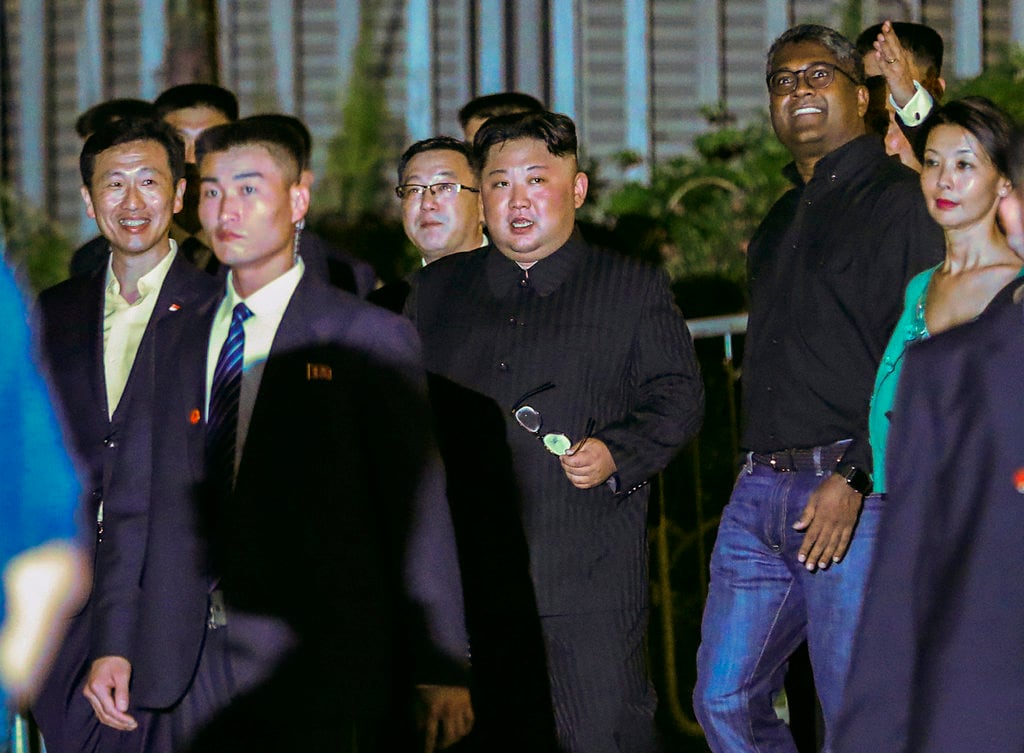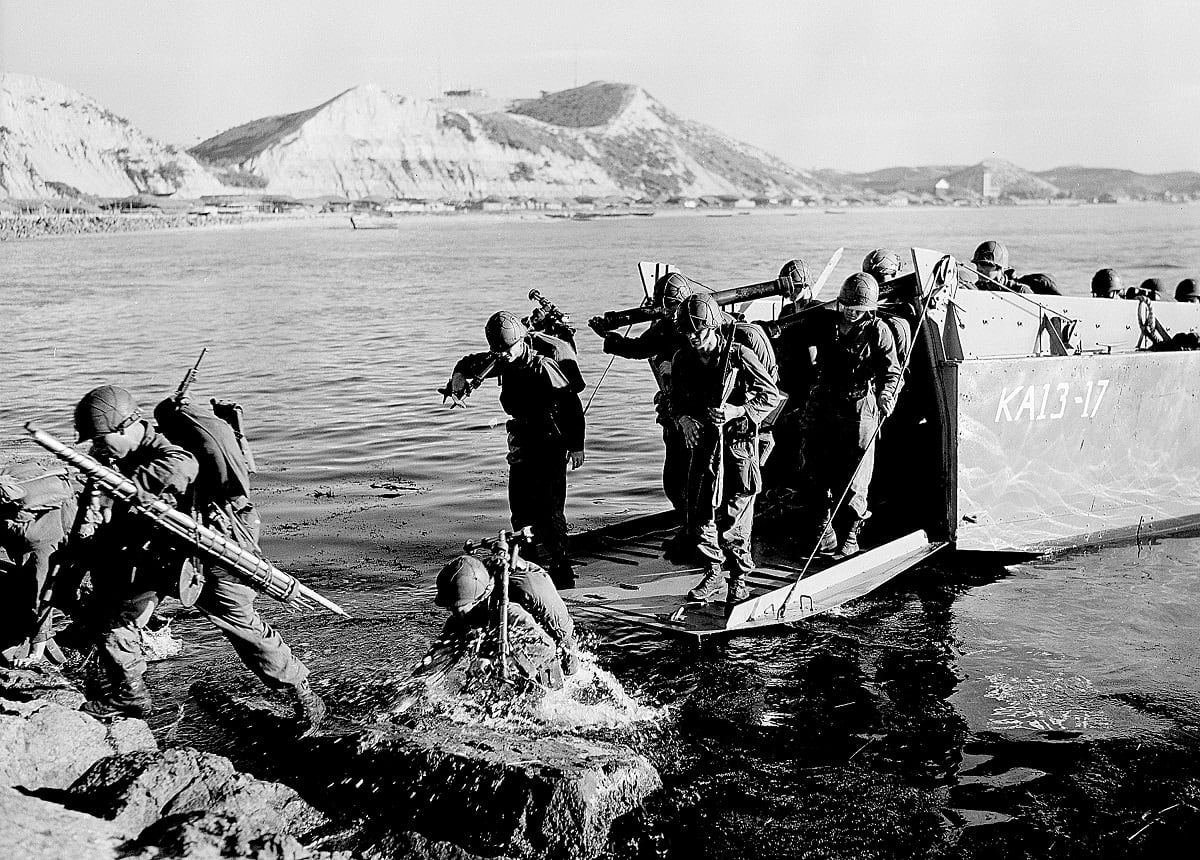SINGAPORE — They came with scores of aides, bodyguards and diplomats in tow: Donald Trump from Washington, Kim Jong Un from Pyongyang. But for the better part of an hour, the two men will square off one on one, alone but for a pair of translators, raising concerns about the risk of holding such a monumental meeting with barely anyone to bear witness.
After greeting each other for the first time Tuesday in front of reporters, the American president and the North Korean leader will seclude themselves on Singapore’s Sentosa Island for roughly 45 minutes while their entourages wait nearby. The intimate huddle will precede a larger meeting and a working lunch attended by Trump’s chief of staff, national security adviser and secretary of state, the White House said, along with some of their North Korean counterparts.
Word of the private tete-a-tete on Monday immediately unleashed a torrent of criticism on social media from national security veterans. After all, having aides present in high-stakes meetings — especially ones with adversaries like the leader of North Korea — provides a president with a modicum of protection, ensuring there are staffers on hand to take accurate notes.
RELATED

Absent a detailed historical record and corroborating witnesses, the president’s interlocutor could potentially leave the meeting and misrepresent what transpired, creating a he-said-he-said showdown that could turn into a major headache for the U.S. leader.
“Bad idea,” tweeted Paul Haenle, a former China director at the White House National Security Council in the Obama and George W. Bush administrations. “I could see Trump giving up a lot for very little in return.”
Barry McCaffrey, a retired U.S. Army general, called the one on one an “unacceptable danger to U.S. national security.” He took to Twitter to say that Secretary of State Mike Pompeo and Defense Secretary Jim Mattis should oppose the meeting “in writing.”
“NSC should have TRANSCRIPT of all interactions with brutal, nuclear armed dictator,” McCaffrey wrote, referring to the National Security Council. At stake, he said: “America’s security.”
RELATED

Yet despite the apprehension, there is established precedent for presidents meeting privately with foreign leaders — including foes — with only interpreters as witness. Note-takers are not essential: In the past, interpreters have fulfilled that role by drawing on their contemporaneous translation notes to provide an official, historic record.
Former President Barack Obama was known to occasionally hold impromptu chats with leaders on the sidelines of major global summits with only their translators at their sides. Early in Trump’s presidency, he raised eyebrows when he met with Russian President Vladimir Putin during a conference in Germany with only a Kremlin translator present.
At former President Ronald Reagan’s first meeting with then-Soviet leader Mikhail Gorbachev in Geneva, Switzerland, in November 1985, the two men met alone with only trusted translators. Only 15 minutes had been allotted for the discussion, but it went on for a full hour.
What’s more, the official U.S. “memorandum of conversation,” or “MemCom,” of that meeting was written by the longtime U.S. Russian-to-English interpreter Dmitri Zarechnak, according to a copy of the document posted by the National Security Archive at The George Washington University. The MemCom identifies Reagan and Gorbachev and their translators, Zarechnak and Yuri Uspensky, as the only participants.
One question left unanswered ahead of the Kim Jong Un summit: Who will translate for Trump?
The White House wouldn’t release any names ahead of Tuesday’s summit. But at Pompeo’s two meetings with Kim in Pyongyang earlier this year, the translator role was filled by Andrew Kim, a Korean-American and former CIA Seoul station chief. Pompeo brought him back to the CIA last year to run the Korea Mission Center that has played a central role in the run-up to the summit.
Andrew Kim was spotted by an Associated Press reporter Monday afternoon at the Shangri-La Hotel in Singapore, where Trump is staying. For whatever reason, he wasn’t listed as a member of the official U.S. delegation to the Kim Jong Un summit.
Lee reported from Washington.





